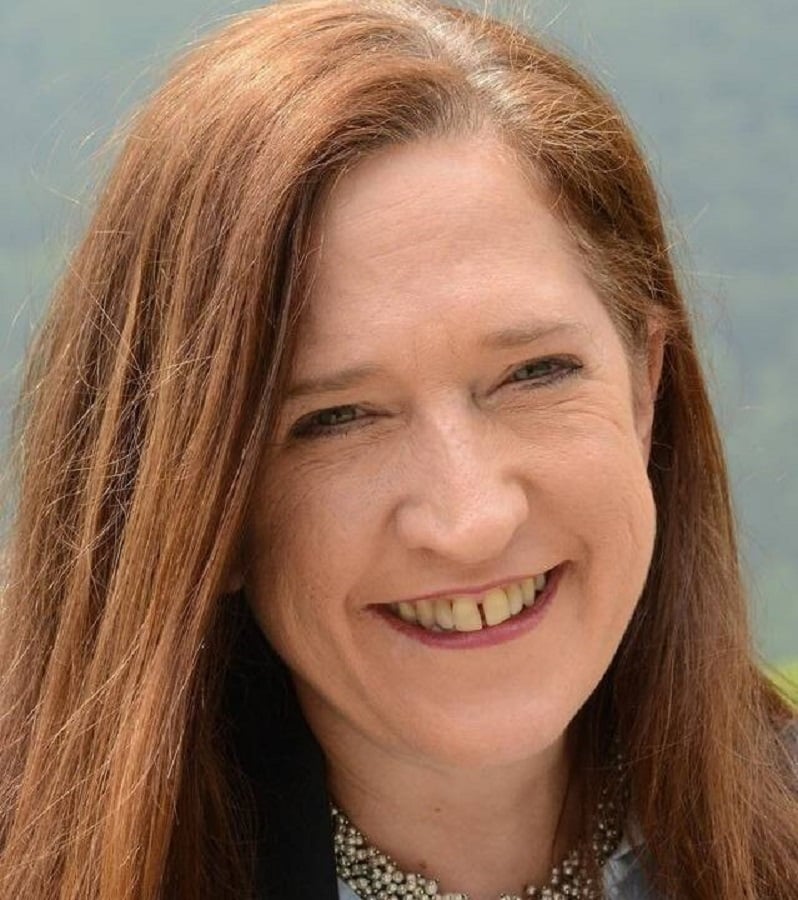The Armenian Weekly. I remember how mesmerized I was at the screening of The Lark Farm in 2007 at the Italian consulate in New York City. My wife Annie and I experienced a whirlwind of emotions watching this Italian drama about the Armenian Genocide. At that moment, it never crossed my mind that, 15 years later, Antonia Arslan, the author of the best-selling novel La Masseria delle Allodole, from which the film is adapted, would be our dinner guest. If you’re wondering how Arslan came to be our dinner guest, the answer is Professor Siobhan Nash-Marshall.
When I first met Dr. Nash-Marshall in the late 2000s, my first question was, “How do you pronounce your name?” She responded by asking, “How do you say ‘rope’ in Armenian?” I replied, “Chevan.” She then said, “Well, replace the ‘ch’ with an ‘s,’ and that’s how you’ll remember my name.” I was trying to recover from my initial embarrassment at not knowing how to pronounce a typical Irish name when I realized that I was in the presence of an incredibly humble Irish woman, who was exceptionally knowledgeable about the Armenian language, history, culture and theology.
When you examine Nash-Marshall’s curriculum vitae, it becomes clear that she was a highly educated scholar, an astute student of philosophy and a devoted Christian. Moreover, if you read between the lines of her extensive CV, it’s evident that Nash-Marshall had a deep friendship with the Armenian people, which was rooted in her strong bond with her Armenian godmother, Antonia Arslan.
Her friendship with the Armenian people was profound. I recall having her as a guest on my podcast on two different occasions. The first was in 2015 when she championed the “Armenia Day” initiative at Manhattanville University. When I asked her why she cared about Armenians, her response was unique: “Armenians are the most western of our eastern cousins.” Her “our” referred to Christendom.
Read also
Our second interview was in 2017, just before the publication of her book, The Sins of the Fathers: Turkish Denialism and the Armenian Genocide. Off the air, she confided to me that she had received threats against its publication. I began that interview with the same question: Why do you care for the Armenians? This time, she quoted Pope John Paul II’s testimony in his Apostolic Letter to the Armenians in 2001, commemorating the 1700th anniversary of Armenia’s acceptance of Christianity. The Pope wrote: “I would especially like to thank Armenians for their long history of fidelity to Christ, a fidelity that has known persecution and martyrdom. The children of Christian Armenia shed their blood for the Lord, and through their sacrifice, the whole Church grew and was strengthened. If today, the West can freely profess its faith, it is also due to those who sacrificed themselves, making their bodies a bulwark for the Christian world to its furthest reaches. Their death was the price of our safety; they now shine brightly, clothed in white robes and singing the hymn of praise to the Lamb in heavenly bliss.”
Two key points from John Paul’s Apostolic Letter serve as the foundation for Nash-Marshall’s friendship with Armenians. Firstly, she viewed the martyrdom of the Armenian Church not as a victimization but as a testament to faith. Secondly, she regarded the Armenian Church as a protective barrier that has secured the freedom of Western Christianity.
Nash-Marshall’s blend of her friendship with the Armenian community and her training in metaphysics gave rise to her book, The Sins of the Fathers. The Armenian Genocide, which occurred during World War I (1915–1923), involved the systematic extermination of 1.5 million Armenians by the Ottoman Empire. This tragic event was characterized by massacres, forced deportations and death marches to the Syrian desert.
In her book, Nash-Marshall examined the Turkish State’s ongoing denial of the genocide. She portrayed denialism not just as a refusal to acknowledge historical facts, but as a conscious distortion of history aimed at avoiding accountability and maintaining a national narrative. Nash-Marshall explored the philosophical and moral implications of denialism, comparing it to a “sin of the fathers” that is passed down through generations.
She critiqued the ethical and psychological effects of denying atrocities, affecting both the perpetrators and the descendants of victims. The book also highlighted the complicity or indifference of Western powers during and after the genocide, critiquing how geopolitical interests often take precedence over moral responsibility.
Nash-Marshall emphasized that confronting uncomfortable truths is crucial for reconciliation and for preventing future genocides. She urged readers, scholars and policymakers to take a firm stand against denialism and called for the recognition of the Armenian Genocide as a means to promote truth, accountability and healing.
Nash-Marshall’s friendship was deeply relational rather than purely intellectual. In 2017, she co-founded the Antonia Arslan Armenian Italian School in Stepanakert, which aimed to provide vocational education to the youth of Artsakh. She would take her students from New York to spend time in Artsakh, where they taught English and other skills to local youth. I remember being impressed when I met two of those students upon their return from Artsakh.
Nash-Marshall had an extraordinary talent for connecting with her audience, evoking a sense of wonder and appreciation while encouraging curiosity. She spoke about intricate details of Armenian history that the average person might not be familiar with, inspiring them to take pride in their heritage and to learn more about their roots. Despite her extensive professional training and education, she remained warm and approachable.
At a dinner table in my humble home, Siobhan Nash-Marshall, Antonia Arslan and my family shared a meal and engaged in deep discussions about faith and culture. Nash-Marshall spoke about her prayer life and her devotion to Mary while enjoying the Armenian food that my wife had joyfully prepared. As the evening came to an end, we all agreed to do this more often.
One of the features of technology that I enjoy is an app that shows photos from previous years. On Sunday, December 8 of this year, photos from that dinner appeared. I shared one of them with Siobhan via text and wrote, “We miss you.” She replied, “We miss you, too. Please pray for me.” I had no idea that would be our final conversation, as she passed away on December 12.
With her passing, humanity lost a great soul — a person who fought for the truth while building bridges with the oppressed and marginalized. She was a true disciple of the Christian faith.
Professor Siobhan Nash-Marshall was the Mary T. Clark Chair of Christian Philosophy at Manhattanville University. She held Ph.D.s from Fordham University and the Università Cattolica di Milano, a L.M. from the Università di Padova and a B.A. from New York University. Her specializations were metaphysics, epistemology and medieval philosophy. A prolific author, her most recent publications included “Scholar Reflects on ‘enormous significance’ of U.S. Recognition of the Armenia Genocide” (2021), “Aspettando Giobbe” (2021) and “On Thales, Chaos, and Water” (2021). Her 2018 book, The Sins of the Fathers: Turkish Denialism and the Armenian Genocide (2018), has been translated into Italian and Armenian.
Archpriest Fr. Nareg Terterian




























































